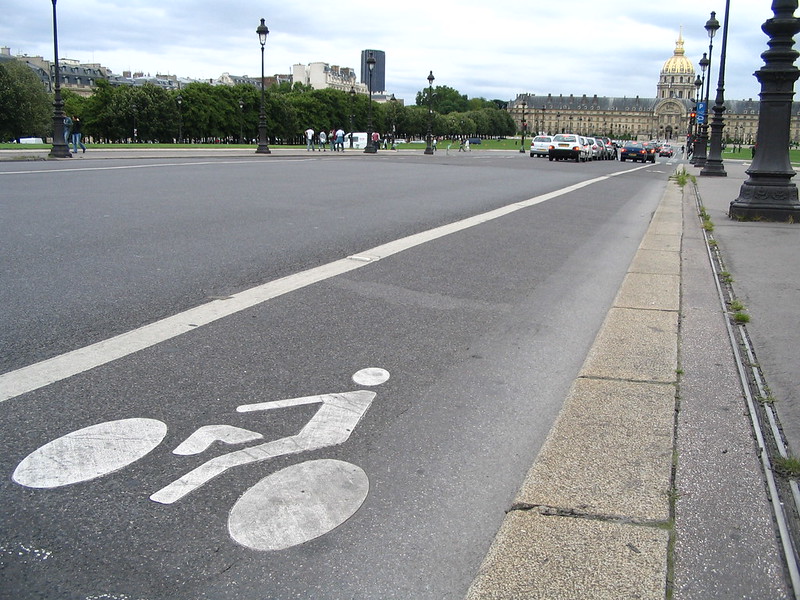
Photo: Kin Mun Lee
Paris to create 650 kilometres of new cycleways
28 April 2020
by Christopher Carey
Paris has unveiled plans to install up to 650 kilometres of temporary and permanent bicycle lanes, with the first expected to be ready by 11 May—when coronavirus (COVID-19) lockdown requirements are due to be eased in the French capital.
The €300 million investment accelerates Paris Mayor Anne Hildago’s Plan Vélo scheme, which aims to make every street in the city cycle-friendly by 2024.
It follows a global trend over the past month of cities taking advantage of less congested streets to reallocate road space–particularly to cyclists–with temporary pop-up bike lanes often appearing overnight.
Berlin has temporarily widened a number of bike lanes in the Kreuzberg district to comply with the 1.5 metre social-distancing guidelines—using removable tape and mobile signs to mark the roads.
German states have widely encouraged the use of bicycles in spite of the current restrictions, with health minister Jens Spahn and the German Cyclists Association recommending cycling as the safest option for taking necessary trips.
While these developments have been welcomed by cycling advocates, there are some concerns about safety, given how the majority of new lanes are not segregated or protected from motorists.
Morten Kabell, co-CEO, European Cyclists Federation told Cities Today: “If these [bicycle lanes] are made using only tape or paint, then this isn’t really protected biking infrastructure.
“We need a lot more permanent biking infrastructure and we need it to be protected, so you would actually feel safe about everyone who cycles, like kids using lanes to go to school, for instance.”
Other cycling related projects to emerge globally include Milan’s Strade Aperte (Open Streets) plan to reallocate 35 kilometres of city centre road space for temporary cycle lanes, create new and widened pavements, designate streets as a priority for pedestrians and cyclists and impose a speed limit of 30 kilometres per hour. In the Americas, Vancouver has banned cars from Stanley Park to prioritise cyclists and pedestrians; Denver is introducing pop-up cycling and walking lanes on Avenues 16th and 11th; and Bogotá is creating almost 120 kilometres of new bike routes across the city.
In new technical guidance on mobility during the COVID-19 outbreak, The World Health Organisation (WHO) has recommended cycling and walking for both social distancing and in meeting minimum requirements for daily physical activity.







